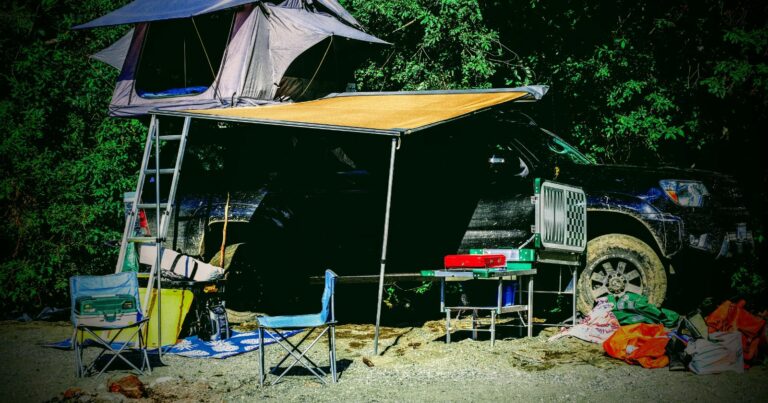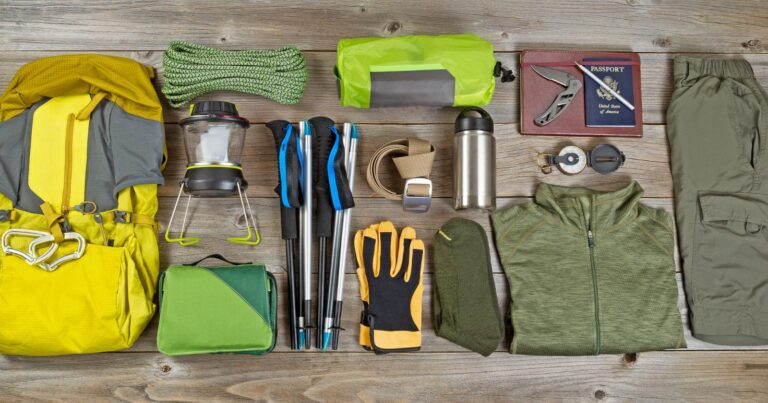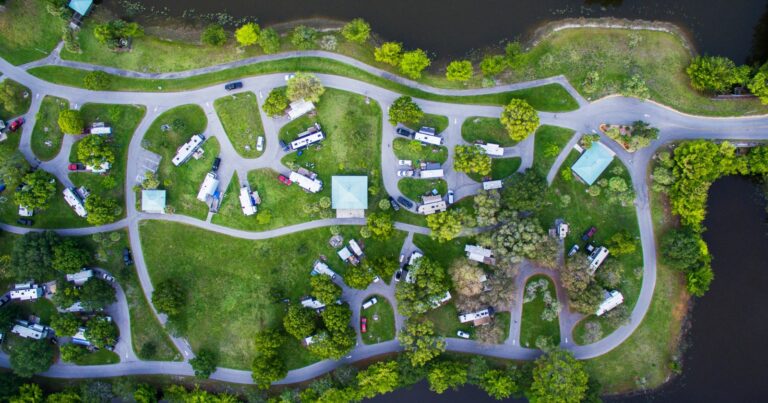Is It Legal to Camp Anywhere in Colorado?
Have you ever dreamed of leaving the 9-to-5 grind and starting your own business? If you love the outdoors, running a campground in Colorado could be a profitable and rewarding venture for you. But before you quit your day job, it’s important to understand what it really takes to launch and run a successful campground.
Operating a campground can generate returns between 10-30%, which is music to any entrepreneur’s ears. But simply slapping up some tents and waiting for profits to roll in won’t cut it. The profitability of your campground hinges on key factors like location, amenities offered, and your business savvy.
A campground’s earnings potential does make it an enticing investment if done right. But also know that startup costs can be steep, and trailblazing a new business is demanding work. However, the personal fulfillment of connecting with nature and people while enjoying the flexibility of being your own boss could make the challenges worthwhile for you in the long run.
The bottom line is that launching a money-making campground takes careful planning, research and plain old fashioned grit. Before diving head first into your new business venture, learn what it takes to set up and successfully run a campground. That way you can determine if pivoting to campground ownership is the right move for you, or just a romanticized dream.
This article provides key insights into factors that impact campground profitability in Colorado. Read on to learn what it really takes to start and run a lucrative campground that could help you achieve financial freedom and a deeply rewarding lifestyle.
Factors Impacting the Legality of Dispersed Camping
When it comes to camping on public lands in Colorado, you need to understand the difference between designated campgrounds and dispersed camping. Designated campsites are in official campgrounds run by various land agencies. Dispersed camping is when you camp outside of designated campgrounds and facilities. Here are some key factors that impact whether or not camping on public land is legal:
Land Agency Rules
- Public lands in Colorado are managed by different federal and state agencies like the Bureau of Land Management (BLM), U.S. Forest Service, National Park Service, Colorado State Parks, etc. Each agency has its own rules regarding dispersed camping, so you need to check their individual regulations.
Prohibited Areas
- Some public lands have signs indicating that camping is prohibited in certain areas. This may be due to environmental fragility, proximity to private property, fire risk or other factors. Make sure you comply with any posted restrictions.
Stay Limitations
- Most public lands have limits on how long you can camp in one spot when dispersed camping. The limit is often 14 days within a 30 day period. Make sure you move sites accordingly.
Permits & Fees
- Some areas require free dispersed camping permits. There are also a few areas in national forests and BLM lands where small nightly fees apply for dispersed camping. Know the rules on permits and fees wherever you camp.
Leave No Trace Ethics
- You must adhere to Leave No Trace principles when dispersed camping on public lands. Following LNT guidelines like packing out all trash and respecting wildlife is mandatory.
Best Practices for Legally Dispersed Camping
To ensure you are camping legally and ethically on public lands, here are some best practices to follow:
- Research regulations – Check area-specific rules from the managing land agency before camping.
- Avoid private property – Make sure you are on public lands 100% of the time. Being on private property without permission is trespassing.
- Follow fire bans – Obey any seasonal fire restrictions in place to avoid wildfires.
- Watch your impact – Stick to existing roads and trails to minimize your environmental impact.
- Pack out waste – Practice Leave No Trace by packing out all trash and waste. Burying waste is prohibited.
- Obtain permits – Get any required camping permits before your trip. Usually free but mandatory.
- Pay fees – Be prepared to pay small nightly dispersed camping fees ($5-$15) where required.
- Limit stays – Allow 2 weeks between long-term camping stints in the same area.
Where Dispersed Camping Is Legal in Colorado
Many public lands allow dispersed camping if you follow the right guidelines. Here are some of the most popular areas for legal and ethical dispersed camping:
Bureau of Land Management (BLM)
The BLM manages 8.3 million acres of public lands in Colorado. Most BLM lands allow dispersed camping. Some top options are:
- Gunnison Gorge National Conservation Area
- McInnis Canyons National Conservation Area
- Browns Park National Wildlife Refuge
- Grand Junction Field Office Areas
National Forests
You can legally disperse camp in most parts of Colorado’s 11 national forests managed by the U.S. Forest Service:
- White River National Forest
- San Isabel National Forest
- Grand Mesa National Forest
- Gunnison National Forest
- etc.
National Parks & Monuments
Dispersed camping is limited, but you can backpack to certain remote zones like:
- Mesa Verde National Park
- Dinosaur National Monument
- Colorado National Monument
State Parks & State Trust Lands
Dispersed camping opportunities are minimal, but some parks have remote backpack-in sites.
Wilderness Areas
Legally camping in remote sections of Colorado’s wilderness areas is allowed if following regulations.
Frequently Asked Questions
Is dispersed camping really free on public lands?
While you don’t pay for campsite spots, you may need to pay small nightly dispersed camping fees ($5-$15) in certain national forest and BLM areas. Permits are often free.
What type of dispersed camping gear do I need?
You should be fully self-sufficient with your own shelter, cookware, water, first aid kit, etc. Pack light but have essential safety gear like maps, compass, GPS and headlamps.
Can I build a campfire when dispersed camping?
Campfires are allowed in some areas but can be prohibited due to fire bans. Use established fire rings when possible or avoid fires altogether by bringing a camp stove.
Where can I legally dispose of human waste?
You must pack out all human waste in waste bags and properly dispose of it off site. Burying or dumping waste on public lands is prohibited.
How do I find good dispersed camping locations?
Online maps, local ranger offices and guidebooks like The Dyrt are great resources. Scouting areas in advance will also reveal ideal legal camping spots.
Can I bring my dog dispersed camping?
Dogs are allowed if leashed, though some areas may prohibit dogs due to wildlife concerns. Always pack out dog waste bags. Make sure your pup can handle the rugged terrain too!
Key Takeaways on Dispersed Camping Laws
The bottom line is that dispersed camping is legal in many public lands if you educate yourself and follow certain guidelines. Here are the key takeaways:
- Dispersed camping regulations vary between different public lands. Do careful research beforehand.
- Avoid private property, prohibited zones, fire bans and wildlife closures.
- Always adhere to Leave No Trace principles, permit rules and nightly fee requirements.
- Limit your stay to 14 days then change locations and allow the area to recover.
With millions of acres of public lands, Colorado offers tremendous dispersed camping opportunities. As long as you follow the regulations on whatever land you are on, it is possible to have amazing backcountry camping experiences across the state. Just be mindful and educated so your public lands camping adventures are safe, legal and low-impact.







